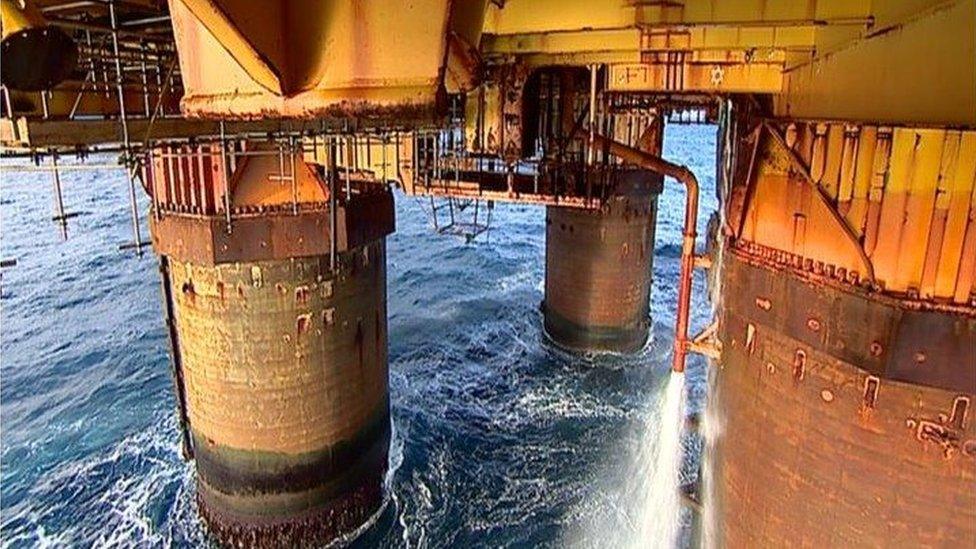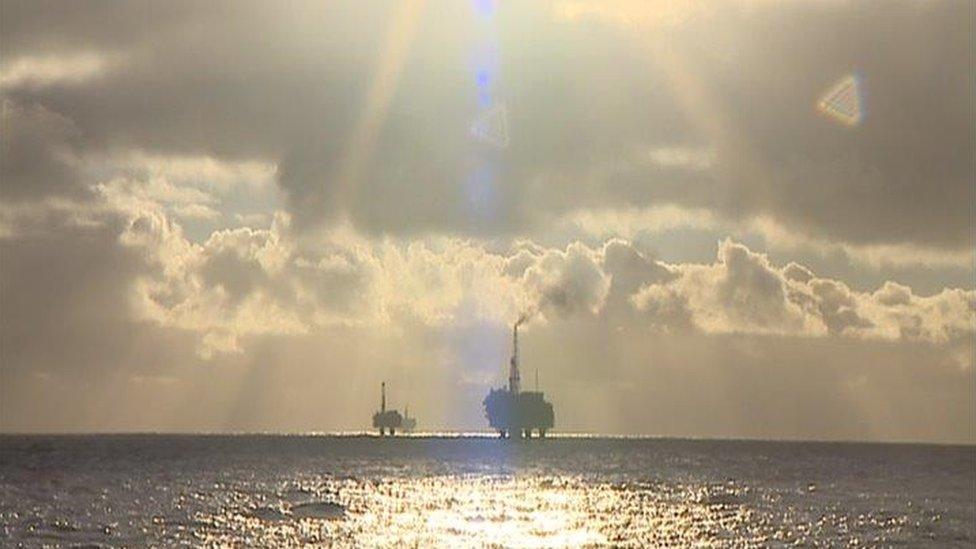Platform legs at Shell Brent field could be left at sea
- Published

The legs on the Brent Delta platform
Shell has announced it plans to leave the giant legs of its three Brent field platforms in the North Sea when it completes decommissioning work.
Each leg is made of concrete and steel and weighs about 300,000 tonnes.
Shell has begun preparations to decommission Brent Delta and will seek an exemption from the UK government to leave the legs on safety grounds.
Environmental campaign group WWF Scotland said it would carefully examine Shell's final proposals.
Shell said it plans to submit a comprehensive decommissioning plan for the Brent field to the Department of Energy and Climate Change (DECC) before the end of this year.

Shell is preparing to decommission three platforms in the Brent field
A spokesperson for the oil giant said: "As part of this plan, Shell will recommend that the gravity base structures of three of the Brent platforms should be left in place.
"Work is continuing to prepare the Brent Delta platform ahead of its topsides being removed in a single lift operation, which is expected to take place in 2017."
WWF Scotland director Lang Banks said removing, or leaving at sea, oil industry structures was "not without environmental risk".
He added: "Given the potential impacts on the marine environment and other sea users, we will be carefully examining the final proposals that go out for consultation.
"The industry pushed the boundaries of science and engineering to access North Sea oil and gas.
"Having made massive profits over the last few decades, it's only right that it should push those limits once again to clean up their potentially hazardous legacy and protect the marine environment."
Scottish Green MSP Mark Ruskell said Shell has the "money, manpower and ingenuity" to come up with a safe method of removing the legs.
He said: "Unless there is an overwhelming environmental case for retaining some structures on the sea bed then they should be removed in their entirety."